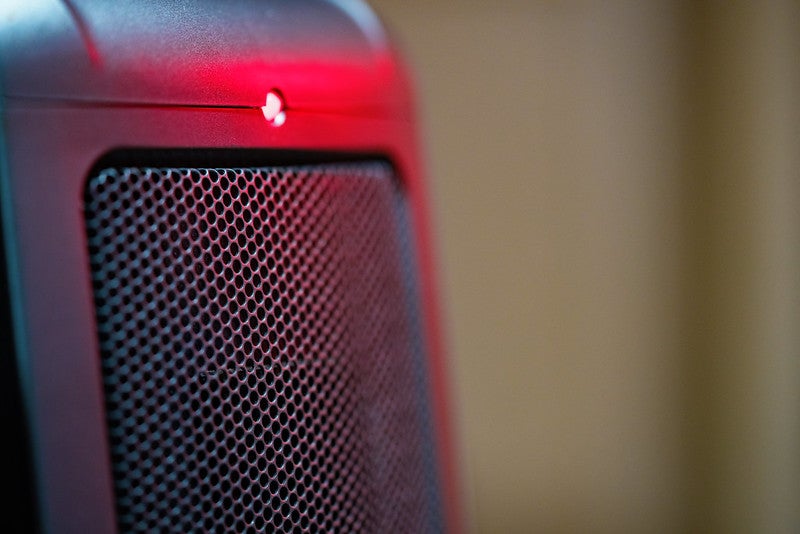Small space heaters are typically used when the main heating system is inadequate or when central heating is too costly to install or operate. In some cases, small space heaters can be less expensive to use if you only want to heat one room or supplement inadequate heating in one room. They can also boost the temperature of rooms used by individuals who are sensitive to cold, especially elderly persons, without overheating your entire home. Space heaters commonly run on electricity, propane, natural gas, and kerosene.
Although most space heaters work by convection (the circulation of air in a room), some rely on radiant heating. Radiant heaters emit infrared radiation that directly heats objects and people within their line of sight, and are a more efficient choice when you will be in a room for only a few hours and can stay within the line of sight of the heater. They can also be more efficient when you will be using a room for a short period because they save energy by directly heating the occupant of the room and the occupant's immediate surroundings rather than the whole room.
Safety is a top consideration when using space heaters. The U.S. Consumer Product Safety Commission estimates that more than 25,000 residential fires every year are associated with the use of space heaters, resulting in more than 300 deaths. In addition, an estimated 6,000 people receive hospital emergency room care for burn injuries associated with contacting the hot surfaces of room heaters, mostly in non-fire situations.
When purchasing a space heater, be sure to follow these guidelines:
- Only purchase newer model heaters that have all of the current safety features. Make sure the heater carries the Underwriter's Laboratory (UL) label.
- Choose a thermostatically controlled heater because they avoid the energy waste of overheating a room.
- Select a heater of the proper size for the room you wish to heat. Do not purchase oversized heaters. Most heaters come with a general sizing table.
- Locate the heater on a level surface away from foot traffic. Be especially careful to keep children and pets away from the heater.
- Electric heaters should be plugged directly into the wall outlet. If an extension cord is necessary, use the shortest possible heavy-duty cord of 14-gauge wire or larger. Always check and follow any manufacturer’s instructions pertaining to the use of extension cords.
- Buy a unit with a tip-over safety switch, which automatically shuts off the heater if the unit is tipped over.
- Be sure your heater has at least three feet of clearance on all sides, free of furniture, curtains, clothing, and other flammable materials.
Source: www.energy.gov
- Log in to post comments



